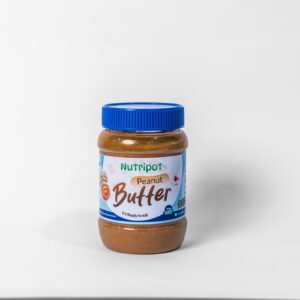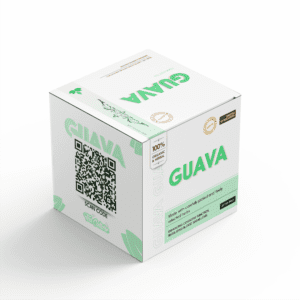– By Kemi Jeje
The phrase “herbal tea” is deceptive. The term “tea” was originally only applied to infusions produced from the Camellia sinensis tea plant. As a result, oolong, black, white, and green teas came to be known by this term. To be grammatically and conceptually correct, “herbal infusions” would be a better term to describe herbal products made from herbs.
In this article, I want to talk about herbal infusions. How it can be efficiently used to treat the serious health problems affecting the Nigerian population if taken frequently. Also, address the numerous health issues that the majority of Nigerians experience as a result of malnutrition and bad habits. I’ll also reveal how creating a healthy lifestyle like drinking herbal infusions can help resolve certain health problems.
Herbal infusions have been used for thousands of years by cultures around the world to address a myriad of health issues. In Nigeria alone, these herbal infusions serve as a major treatment for varying illnesses, providing a natural and holistic response to the many ailments and diseases that plague the country. From malaria to cancer, herbal infusions can be used as an effective and beneficial form of self-care.
Like people in other developing countries, most Nigerians suffer from a diverse number of illnesses, ranging from severe coughs and colds to stomach pains, acute headaches, toothaches, constant fatigue, arthritis, high cholesterol, diabetes, weight loss, high blood pressure, and so on.
We can find the solutions to these illnesses and more in the everyday plants and herbs around us. If only we knew how to access this unrestricted medical resource surrounding us. The solution is right in front of us; we don’t need to look for it. Follow me on this journey as I show you the way to a healthier lifestyle.
Daily consumption of carbonated beverages by many Nigerian families raises the risk of diabetes and obesity because the majority of these beverages are highly sweetened with artificial sweeteners and sugar. Herbs are healthier substitutes, though. Most people are unaware of the health benefits of drinking herbal drinks in the same way that they drink tea, and why they should adopt a lifestyle that encourages the consumption of herbal beverages.
Nigeria is blessed with an abundance of herbal plants rich in minerals, vitamins, and other active phytochemicals. It is the world’s fourth-largest producer of tea, which is just one of our many herbal beverages, after China, India, and Kenya. In 2010, Nigeria produced about 36,000 metric tonnes of tea, including herbal infusions.
The use of herbal infusions is very popular among the Nigerian populace, with an estimated 89 percent of adults drinking them regularly. According to a survey conducted by the Nigerian Institute of Social and Economic Research, herbal infusions account for approximately 65 percent of all drinks (including tea) consumed in the country. The most popular herbal infusions consumed in Nigeria include ginger tea, hibiscus tea, cinnamon tea, and lemongrass tea.
One would think with the statistically high usage of herbal infusions, Nigerians wouldn’t be plagued by illnesses like high blood pressure, diabetes, etc. anymore. Despite the high intake of herbal infusions, most Nigerians are unaware of how to use them to their advantage. Even though these figures are outstanding, the lack of expertise regarding the use of these infusions seems to do more harm than good.
Does this mean herbal infusions are not effective in the fight against most non-communicable diseases? No, it is still the cheapest and most effective alternative to synthesised medications. By consuming herbal infusions alone, you can prevent most of the NCDs mentioned above and elsewhere.
But why herbal infusions? Herbal infusions are a type of medicinal drink made by brewing herbs and spices in hot water. Herbal infusions are known and used for their many health benefits and as an alternative to regular tea and coffee. Common ingredients in herbal infusions include Moringa oleifera, bitter kola (Garcinia kola), bitter leaf (Vernonia amygdalina), Prunus africana for prostate cancer, baobab (Adansonia digitata), ginger, lemongrass, and Hibiscus sabdariffa. They contain high levels of antioxidants and have numerous health benefits. They are also typically less expensive to acquire and use, and most of the time does not require the use of any additives.
Why should I drink herbal infusions? Drinking herbal infusions has numerous health benefits. Herbal infusions contain antioxidant substances that can help protect your body from disease and ageing. They also contain anti-inflammatory substances that reduce inflammation, ease digestive discomfort, help you relax, and even improve your sleep. Herbal infusions are also naturally caffeine-free, making them a brilliant choice for those who are sensitive to the effects of caffeine. For example, Moringa is a healthier alternative to coffee, providing the same feel and supplying the body with the same nutritional value but without the side effects of caffeine.
For people suffering from skin-related illnesses, herbal infusions work their magic. Herbal infusions can work on the skin in several ways. The antioxidants in herbal infusions can help protect the skin from free radical damage, which can help reduce the appearance of wrinkles and age spots. The anti-inflammatory properties of herbal infusions can help reduce inflammation and redness in the skin, while the natural astringent properties can help tighten pores and reduce oiliness. The tannins in herbal infusions can help treat blemishes and acne, while the flavonoids can help reduce the appearance of dark circles and puffiness. Herbal infusions can also be used as a toner or cleanser to refresh and revive the skin’s appearance.
One herbal infusion bag does not, however, immediately fix all of your health issues. You must plan your lifestyle around continuously consuming herbal infusions if you want to get the desired result. The secret is to develop a culture of drinking herbal infusions. Most individuals find it challenging to accomplish this! The difficulty often lies in this.
Developing a culture around the consumption of herbal infusions could begin with having a mini flask of herbal infusions to go to work with and including herbal infusions in our breakfast and dinner meals.
What kind of herbal infusions should I consume? I’ll recommend lemongrass teas, moringa teas, soursop teas, and the list goes on. I will suggest that you get the help of an expert on this to help guide you on how, when, and what you need to consume to help solve that health challenge.
Fortunately, Wholeats Africa, a food and wellness company dedicated to producing healthier Nigerians, has a programme called Tea Culture that promotes good health. The Tea Culture takes into account all the factors that could render the usage of herbal infusions ineffective or even have negative effects, such as overdosing and inconsistent herbal infusion use.
Overdose with the intake of herbal infusions is a very common problem as there is no volume or standard metric for the intake of the infusions like there is with synthesised drugs. Considering this, Whole Foods has packaged these infusions in easy-to-carry containers and uses tea bags.
As the team leader at Wholeats Africa, I’ve assisted both individuals and businesses in developing easy-to-maintain healthy habits, such as developing a tea culture. As I was doing this, I realised that the simplest way to accomplish this was to make them responsible for their choices and hold them accountable.
To address the issue of inconsistent intake of herbal infusions, Whole Foods has created a community of like-minded individuals to help each other achieve their health goals. Community members are provided with a customized, hand-friendly mini flask that can be carried around.
Our Tea Culture programme supports both individual and corporate needs.
About the Author
Oluwakemi Jeje is a nutrition enthusiast and serial entrepreneur. She is the founder of Wholeats Africa and Community Pot, a wellness and nutrition firm located in Lagos.
You can reach her through her mail:
ke******@gm***.com





